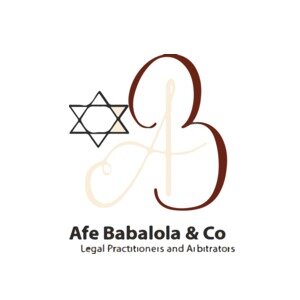Best Bankruptcy & Debt Lawyers in Port Harcourt
Share your needs with us, get contacted by law firms.
Free. Takes 2 min.
List of the best lawyers in Port Harcourt, Nigeria
About Bankruptcy & Debt Law in Port Harcourt, Nigeria
Bankruptcy and debt laws in Nigeria generally provide mechanisms for individuals and corporations unable to meet their financial obligations to be declared insolvent, allowing for legal protection and a structured means to repay their debts. While these laws are federally regulated and, therefore, uniform across the country, the processes and implications may vary in different cities such as Port Harcourt due to the local differences in financial habits, institutions and perceptions.
Why You May Need a Lawyer
Bankruptcy and debt issues can be quite complex. Managing them would require an understanding of financial legislation, insolvency regulations, and the procedural aspects of the court system. Therefore, if you are facing issues such as overwhelming debts, threat of foreclosure on your mortgage, or are considering filing for bankruptcy, it is beneficial to consult with a lawyer. A lawyer can offer guidance on your legal rights, explain the best options based on your individual circumstance, and help you navigate the complex processes involved.
Local Laws Overview
The legal framework governing bankruptcy and debt in Nigeria is mainly found in the Bankruptcy Act and the Companies and Allied Matters Act (CAMA). Key aspects include provisions related to the bankruptcy petition, reorganization or liquidation of assets, and the debtor's discharge. Depending on the circumstances of bankruptcy, debts may be declared as either dischargeable or non-dischargeable. It's also important to note that under the Nigerian law, bankruptcy fraud is a criminal offense punishable by imprisonment. A competent local lawyer can provide detailed interpretations of these legal regulations and how they apply in Port Harcourt.
Frequently Asked Questions
What are the consequences of bankruptcy in Nigeria?
Declaring bankruptcy in Nigeria has several consequences including loss of control over your assets, difficulty in obtaining future credit, and possible social and professional implications. However, it may allow you to make a fresh start once you are discharged from the bankruptcy.
Can all debts be discharged in a bankruptcy?
No, not all debts can be discharged in Nigeria during bankruptcy. Certain debts such as fines, student loans, child support and alimony are generally not dischargeable.
Who can declare bankruptcy in Nigeria?
Both individuals and companies can declare bankruptcy in Nigeria if they are unable to meet their financial obligations. However, individuals must be trading (either alone or in a partnership) at the time the act of bankruptcy was committed.
What is the time frame for the bankruptcy process in Nigeria?
The time frame varies depending on the complexity of the bankruptcy case. Generally, however, the process may take between several months to a few years.
How can I avoid bankruptcy?
Steps to avoid bankruptcy might include budgeting and financial management, debt restructuring or consolidation, negotiating with creditors, or selling off non-essential assets. However, in some situations, declaring bankruptcy might be the best option.
Additional Resources
Additional information about bankruptcy and debt laws can be obtained from the Nigerian Law School, Legal Aid Council of Nigeria, or the Federal Ministry of Justice. These institutions may provide informational resources or refer you to legal assistance programs.
Next Steps
If you need legal assistance in bankruptcy and debt matters in Port Harcourt, it is advisable to consult with a local lawyer who specializes in this area. They can offer legal advice, represent you in court, and provide assistance in filing for bankruptcy if necessary. Also, consider reaching out to legal help communities and nonprofits in Port Harcourt that offer free or low-cost consultations.
Lawzana helps you find the best lawyers and law firms in Port Harcourt through a curated and pre-screened list of qualified legal professionals. Our platform offers rankings and detailed profiles of attorneys and law firms, allowing you to compare based on practice areas, including Bankruptcy & Debt, experience, and client feedback.
Each profile includes a description of the firm's areas of practice, client reviews, team members and partners, year of establishment, spoken languages, office locations, contact information, social media presence, and any published articles or resources. Most firms on our platform speak English and are experienced in both local and international legal matters.
Get a quote from top-rated law firms in Port Harcourt, Nigeria — quickly, securely, and without unnecessary hassle.
Disclaimer:
The information provided on this page is for general informational purposes only and does not constitute legal advice. While we strive to ensure the accuracy and relevance of the content, legal information may change over time, and interpretations of the law can vary. You should always consult with a qualified legal professional for advice specific to your situation.
We disclaim all liability for actions taken or not taken based on the content of this page. If you believe any information is incorrect or outdated, please contact us, and we will review and update it where appropriate.
Browse bankruptcy & debt law firms by service in Port Harcourt, Nigeria
Port Harcourt, Nigeria Attorneys in related practice areas.











